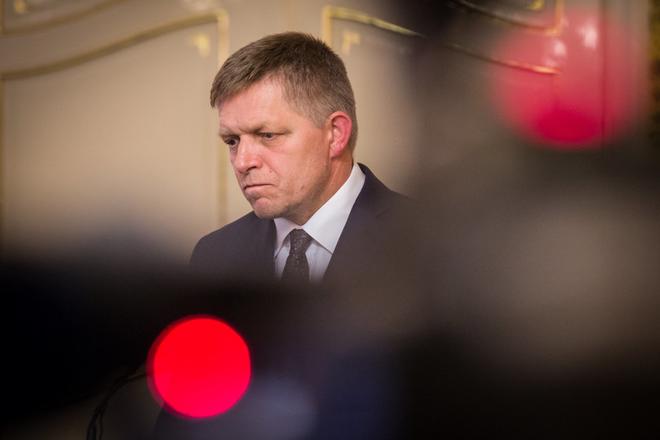The departure of five MPs from Sieť is unlikely to be fatal for the ruling coalition since they have immediately agreed to join another of the ruling parties, Most-Híd.
“The ruling coalition will turn into a coalition of three,” political analyst Grigorij Mesežnikov told The Slovak Spectator, adding that the coalition has never really been a coalition of four since Sieť never managed to get a parliamentary caucus.
After the departure of five MPs around Andrej Hrnčiar, a co-founder of Siet who fell out with Radoslav Procházka even before the August 14 congress that left the party shattered in pieces, the party that is still part of the ruling coalition only has two MPs in the plenum, Procházka and Alena Bašistová. Most-Híd in contrast gains five MPs, and will thus have 15 chairs in the parliament of 150, just like another junior coalition party, the Slovak National Party (SNS). Procházka and Bašistová have also said they would endorse the government’s proposals in the parliament.

“The ruling coalition won’t fall apart, it is still firm enough, because none of the renegades wants to exit it,” Mesežnikov said. On the contrary, if the five Sieť renegades join Most-Hid they are likely to make the coalition even firmer, because “Most appears to be a very firm part of the coalition”.
Cosmetic changes?
Prime Minister Robert Fico too expects the development not to have a substantial impact on the work of the ruling coalition as a whole. He only expects “cosmetic changes” as he told journalists after the cabinet session on August 17.
“The coalition is stable when it comes to numbers,” Fico said as quoted by the TASR newswire.
The ruling coalition is expected to meet in the coming days to deal with the situation, once Most-Híd resolves its internal situation with its new arrivals.
One of the main questions that the ruling coalition is expected to deal with is whether Sieť should keep the post of the transport minister, the only ministerial chair it got based on the coalition agreement, or whether that chair should now belong to Most-Híd.

Brecely’s position will depend on whether Most-Hid will demand his chair and whether the coalition partners, mainly Smer and its leader Robert Fico, will agree with that, Mesežnikov noted. SNS might have a problem supporting such a shift, because with five more votes in the house Most-Híd’s force in the coalition is equal to SNS.
“It is well possible,” Transport Minister Roman Brecely, who since August 13 also serves as the chair of Sieť, said as he arrived to the August 17 session of the cabinet when asked whether it could be his last days as a minister.
Radka Minarechová contributed to this report.


 PM Robert Fico: Coalition is stable. (source: Sme - Jozef Jakubčo)
PM Robert Fico: Coalition is stable. (source: Sme - Jozef Jakubčo)